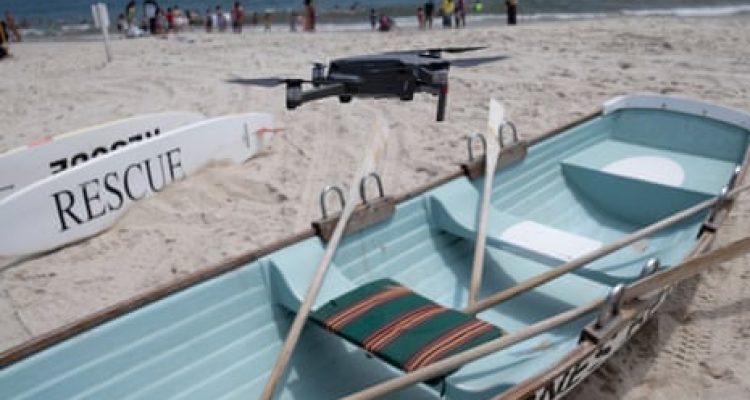Department of Veterans Affairs says the changes come in response to a Trump executive order ‘defending women’
The Department of Veterans Affairs has imposed new guidelines on VA hospitals nationwide that remove language that explicitly prohibited doctors from discriminating against patients based on their political beliefs or marital status.
The new rules, obtained by the Guardian, also apply to psychologists, dentists and a host of other occupations. They have already gone into effect in at least some VA medical centers.
Under federal law, eligible veterans must be given hospital care and services, and the revised VA hospital rules still instruct medical staff that they cannot discriminate against veterans on the basis of race, color, religion and sex. But language within VA hospital bylaws requiring healthcare professionals to care for veterans regardless of their politics and marital status has been explicitly eliminated from these bylaws, raising questions about whether individual workers could now be free to decline to care for patients based on personal characteristics not expressly protected by federal law.
Explicit protections for VA doctors and other medical staff based on their marital status, political party affiliation or union activity have also been removed, documents reviewed by the Guardian show.
The changes also affect chiropractors, certified nurse practitioners, optometrists, podiatrists, licensed clinical social workers and speech therapists.
In making the changes, VA officials citeDonald Trump’s 30 January executive order titled “Defending Women from Gender Ideology Extremism and Restoring Biological Truth to the Federal Government”. The primary purpose of the executive order was to strip most government protections from transgender people. The VA has since ceased providing most gender-affirming care and forbidden a long list of words, including “gender affirming” and “transgender”, from clinical settings.
The Department of Veterans Affairs is the nation’s largest integrated hospital system, with more than 170 hospitals and more than 1,000 clinics. It employs 26,000 doctors and serves 9 million patients annually.
In an emailed response to questions, the VA press secretary, Peter Kasperowicz, did not dispute that language requiring medical staff to treat patients without discriminating on the basis of politics and marital status had been removed from the bylaws , but he said “all eligible veterans will always be welcome at VA and will always receive the benefits and services they’ve earned under the law”.
He said the rule changes were nothing more than “a formality”, but confirmed that they were made to comply with Trump’s executive order. Kasperowicz also said the revisions were necessary to “ensure VA policy comports with federal law”. He did not say which federal law or laws required these changes.
The VA said federal laws and a 2013 policy directive that prohibits discrimination on the basis of marital status or political affiliation would not allow patients within the categories removed from its bylaws to be excluded from treatment or allow discrimination against medical professionals.
“Under no circumstances whatsoever would VA ever deny appropriate care to any eligible veterans or appropriate employment to any qualified potential employees,” a VA representative said.
Until the recent changes, VA hospitals’ bylaws said that medical staff could not discriminate against patients “on the basis of race, age, color, sex, religion, national origin, politics, marital status or disability in any employment matter”. Now, several of those items – including “national origin,” “politics” and “marital status” – have been removed from that list.
Similarly, the bylaw on “decisions regarding medical staff membership” no longer forbids VA hospitals from discriminating against candidates for staff positions based on national origin, sexual orientation, marital status, membership in a labor organization or “lawful political party affiliation”.
Medical experts said the implications of rule changes uncovered by the Guardian could be far-reaching.
They “seem to open the door to discrimination on the basis of anything that is not legally protected”, said Dr Kenneth Kizer, the VA’s top healthcare official during the Clinton administration. He said the changes open up the possibility that doctors could refuse to treat veterans based on their “reason for seeking care – including allegations of rape and sexual assault – current or past political party affiliation or political activity, and personal behavior such as alcohol or marijuana use”.
Dr Arthur Caplan, founding head of the division of medical ethics at New York University’s Grossman School of Medicine, called the new rules “extremely disturbing and unethical”.
Sign up toThis Week in Trumpland
A deep dive into the policies, controversies and oddities surrounding the Trump administration
“It seems on its face an effort to exert political control over the VA medical staff,” he said. “What we typically tell people in healthcare is: ‘You keep your politics at home and take care of your patients.’” Caplan said the rules opened the door to doctors questioning patients about whether they attended a Trump rally or declining to provide healthcare to a veteran because they wore a button critical of JD Vance or voiced support for gay rights.
“Those views aren’t relevant to caring for patients. So why would we put anyone at risk of losing care that way?” Caplan said.
During the 2024 presidential campaign and throughout the early months of his second term, Trump repeatedly made threats against a host of people whom he saw as his political antagonists, including senators,judgesand then president Joe Biden. He calledjournalistsandDemocrats“the enemy within”.
In interviews, veterans said the impact of the new policy would probably fall hardest on female veterans, LGBTQ+ veterans and those who live in rural areas where there are fewer doctors overall. “I’m lucky. I have my choice of three clinics,” said Tia Christopher, a navy veteran who reported being raped in service in 2000.
Based in Pittsburgh, Pennsylvania, Christopher advocates on behalf of military sexual trauma survivors throughout the country. Under the new policy, some may have to register at a hospital in another region and travel more than a hundred miles to see a doctor. It “could have a huge ripple effect”, she said.
As concerned as they were about the new policies themselves, medical experts were equally worried about the way they came about. Sources at multiple VA hospitals, speaking on condition of anonymity because of fear of retaliation, told the Guardian that the rule changes were imposed without consultation with the system’s doctors – a characterization the VA’s Kasperowicz did not dispute.
Such a move would run counter to standards established by the Joint Commission, a non-profit organization that accredits hospitals. Kasperowicz said the agency worked with the Joint Commission “to ensure these changes would have no impact on VA’s accreditation”.
At its annual convention in Chicago this week, the American Medical Association’s 733-member policymaking body passed a resolution reaffirming “its commitment to medical staff self-governance … and urges all healthcare institutions, including the US Department of Veterans Affairs, to ensure that any amendments to medical staff bylaws are subject to approval by medical staff in accordance with Joint Commission standards”.
The changes are part of a larger attack on the independence of medicine and science by the Trump administration, Caplan said, which has included restrictions and cuts at the National Institutes of Health and the Centers for Disease Control and Prevention, where the secretary of the Department of Health and Human Services, Robert F Kennedy Jr, last week fired every member of a key panel that advises the government on vaccines. The Guardian has earlierreportedon a VA edict forbidding agency researchers from publishing in scientific journals without clearance from the agency’s political appointees.
This article and its headline were amended on 18 June 2025. An earlier version said that under the new rules, medical staff could refuse to treat veterans based on their beliefs or marital status, and that candidates for hospital positions could face discrimination on grounds of further characteristics removed from the bylaws. After publication, the VA contacted the Guardian citing a 2013 policy directive that it says will continue to protect patients from discrimination despite the redactions in its bylaws; the VA also cited federal law protecting staff from discrimination. The VA further emphasized that federal law gives all eligible veterans access to hospital services. The VA’s comments on this were added.















